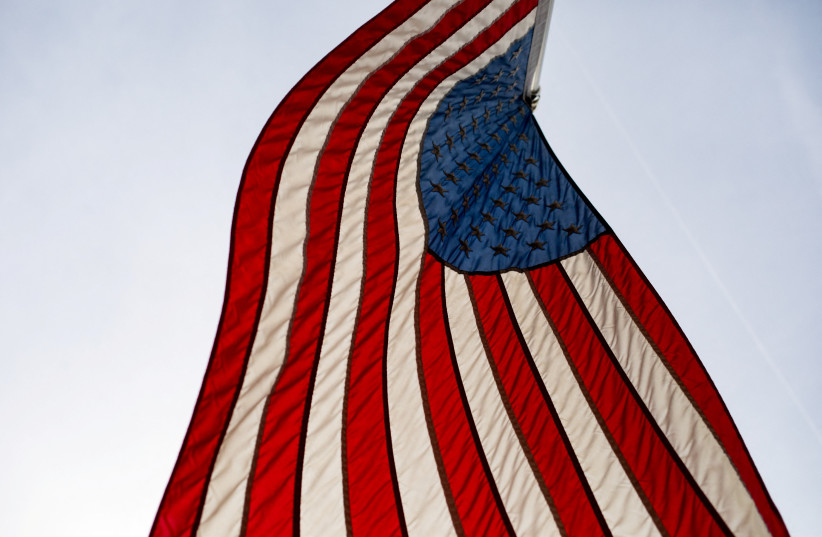Conventional wisdom about political thought and politics itself in the United States, the United Kingdom, Israel, Germany, France and Canada is that liberalism is animated by protecting human rights or promoting the greatest good for the greatest number so that citizens can thrive in the future.
Conservatism, in contrast, is animated by preserving tradition and values from the past that are being ignored or trampled upon by current practices or the advocacy efforts of progressives.
The progressive point of view, at least in the US, the UK and Germany, whether it is advanced by John Locke, Immanuel Kant, John Stuart Mill, Anne-Marie Slaughter, John Rawls, Betty Friedan, John Maynard Keynes or Derrick Bell develops arguments that seek to remake the world so that justice reigns in the future.
The conservative point of view, whether it is advanced by Edmund Burke, Milton Friedman, William F. Buckley, Condoleezza Rice, T.S. Eliot, Phyllis Schafly, Thomas Sowell or George F. Will, on the other hand, develops arguments that seek to maintain the world so that it preserves traditions and values from the past.
This point of view, though partially accurate, is nevertheless erroneous. Liberalism is driven by the past more than conservatism.

Liberalism, especially mixed-economy liberalism as opposed to pre-Progressive Era liberalism, is animated by the past because it never stops trying to correct past wrongs. Slavery and discrimination against Blacks in the US is a leading example.
Affirmative Action is the paradigm case of progressive public policy that is rooted in an understanding of past injustice and an aim to correct it with progressive policies that redistribute wealth and power, as well as provide formal guarantees that Blacks will not be turned away from jobs or education opportunities due to their race.
Conservatism, on the other hand, wants each citizen to have a fair chance at exercising his or her political and civil liberties and succeeding in an economy and in educational institutions that do not discriminate against anyone due to their gender, race or religion.
CONSERVATIVES IN America, since the 1990s, claim that our country made sufficient changes from the 1950s to the 1990s in order to create a fair playing field for all citizens to thrive. They focus, therefore, on the bright future that is possible for everyone if they exert the effort and determination that is needed to succeed.
Regarding race relations, they point to the Civil Rights Act of 1964, the Voting Rights Act of 1965, LBJ’s Affirmative Action policies, the creation of the Economic Equal Opportunity Commission and more.
Progressives driven by righting the wrongs of the past
Progressives are frequently driven by righting the wrongs of the past, determined to ensure that the poor are no longer denied opportunities due to environmental injustice that gives them diseases and that women and minorities get special treatment in the workplace, schools, colleges and universities to counteract the systemic sexism and racism that still exist.
Blacks are outraged by the brutality that has afflicted their people. Women are disgusted with the horrific ways men have raped and sexually harassed them and the unfair ways they have been treated in employment and education settings. The LGBTQ community has deep grief over the countless ways their community has suffered.
Liberalism, therefore, is rooted in outrage, disgust and grief – emotions that provide a basis for generating a vision of the future that would right these wrongs.
The emphasis of liberalism is on past injustice, not future justice. Justice in the future is certainly the goal but injustice in the past powers the perspective. The liberal tradition, ironically, is more concerned with studying, understanding and judging the past than the conservative tradition.
Analyzing and judging past institutions and social practices does not mean that your analysis and judgment are correct. But there can be no doubt that liberalism, especially in the 20th and 21st centuries, is interested in changing the world for the future because they have analyzed and made judgments about the past which cause them to want change.
Conservatives do want to preserve the past but liberals dig much deeper into the past and want to initiate changes in the present to ensure that the future is very different from the past.
In this regard, liberalism takes the past more seriously than conservatism.
The writer (dmamaryland@gmail.com) is the editor of the interdisciplinary volume Leveraging: A Political, Economic and Societal Framework and has taught political philosophy at five colleges and universities.
